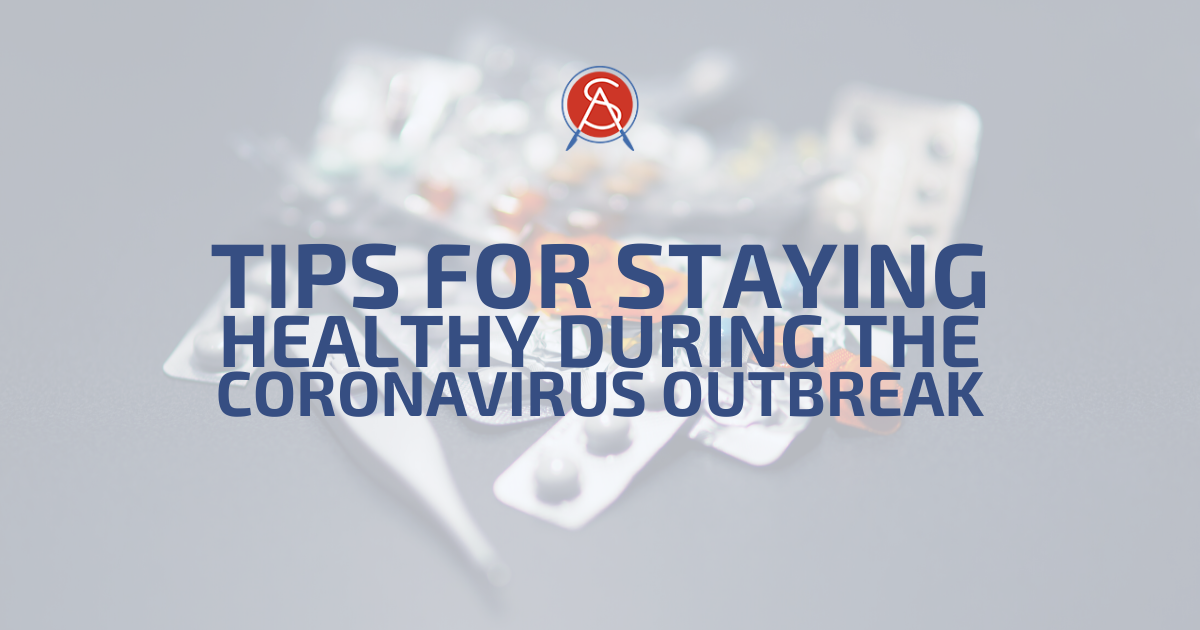As you already know, the novel coronavirus or COVID-19 has spread around the world and has affected over 100,000 people that we know of. We are seeing quite a bit of misinformation on the true effects of the disease as well as how to manage it. The result, unfortunately, is one of creating a great deal of panic which is evident by fights over toilet paper, food shortages at stores and other impulse buying.
So, what is the truth about the coronavirus and managing it
Much like any infectious disease, it’s best to prevent catching it in the first place. The Centers for Disease Control or CDC is the preeminent authority in the United States on these sorts of diseases. Their guidance, including washing hands thoroughly and often and not touching your face are the best way to prevent contracting the disease. Staying away from large crowds and certainly staying away from people who may have been exposed to coronavirus, either through travel or community transmission, is a must as well.
However, our own immune system is an extremely powerful tool as well. Every day, we are exposed to bacteria, viruses and fungus that can make us sick. Oftentimes, they are in small enough concentrations that they do not take hold in our bodies. However, sometimes we are exposed to enough to make us sick, but our immune system fights it off. And just like the common cold or the flu, this novel coronavirus can overwhelm a body that has a compromised immune system.
How do we strengthen our immune system?
If you had bariatric surgery and lost a good deal of weight, you will likely have lost weight improved your high blood pressure and diabetes, both of which are important for immune system health and both of which increase the risk of complications during a viral infection. However, even those who are overweight and still suffering from these comorbid diseases, can improve their health situation very quickly.
Diet and Exercise
Starting an exercise program to include walking for half an hour each day, swimming, or vigorous housework is a great way to improve general health. In addition, improving diet by introducing whole grains, fresh fruits, vegetables and lean meats instead of processed foods will complement the new exercise routine nicely. The combination will help drop some weight but also improve the strength of the immune system and reduce the risk of serious complications due to a viral infection.
Vitamins & Minerals
Proper vitamin and mineral levels will also be a key component of an immune system boost to fight off a viral attack. Once again, bariatric surgery patients will have had regular follow up appointments to check their vitamin and nutrient levels. Common deficiencies include iron, vitamin D, Vitamin B12 and more. While bariatric patients will likely have sufficient levels of each of these as they are supplementing regularly, many others may be deficient. Indeed, low Vitamin D levels are one of the most common deficiencies in the United States, but the vitamin is believed to improve immune system health (not to mention its bone health and mood improvement properties). Speak to your doctor, preferably through Telehealth (for the time being), to see if supplementation may be appropriate.
Water
Water is also critical part of the post bariatric lifestyle. Bariatric patients know that getting 64 ounces of water each day is not negotiable. The same holds true for those who haven’t had bariatric surgery and for those who are particularly concerned about contracting the virus. Drinking lots of water not only improves bodily function including the immune system which may reduce the risk of complications due to a viral infection such as coronavirus.
Eliminate Anxiety and Stress
Anxiety and stress have proven to reduce the effectiveness of the immune system in part because these emotions stimulate the release of cortisol, a powerful steroid naturally produced by our bodies. Not only can this make it easier to contracting infectious disease, but cortisol has also been shown to make it easier to gain weight.
Ultimately, there is a lot we don’t know about this virus and that is why there is such concern and fear about its affects. But we do know however is that people with compromised immune systems and those with underlying medical conditions are far more likely to have serious or even fatal complications due to secondary to the infection. Of course, having bariatric surgery immediately is not a practical consideration but there’s plenty we can do in the meantime to improve our health situation and reduce the he heard of contracting and ultimately having complications from the coronavirus.



